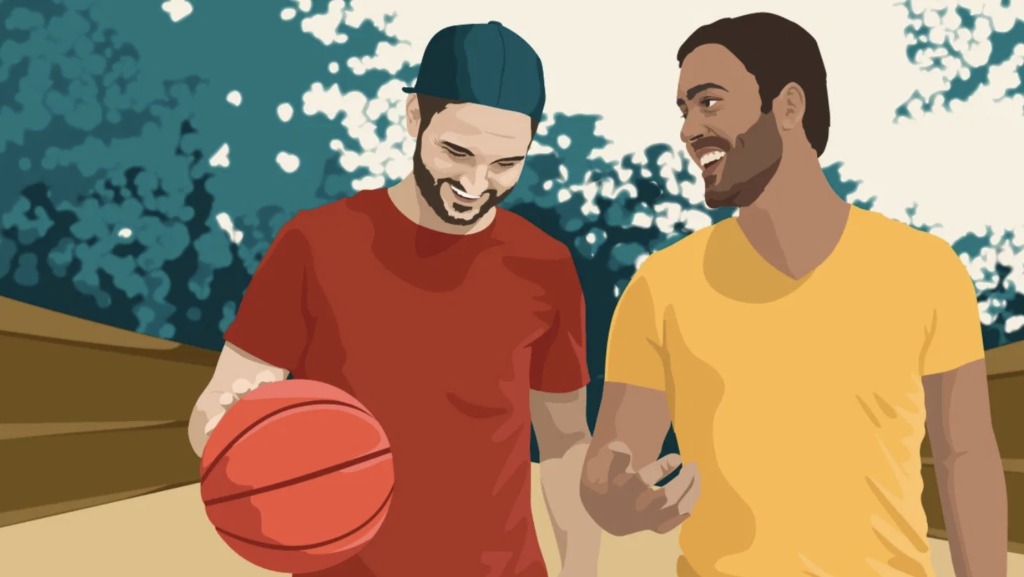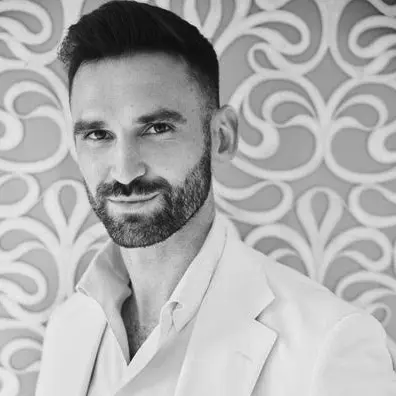Webinar
- When: Wednesday October 13th, 2021
- Time: 8pm ET / 5pm PT
- Cost: FREE
- Where: https://community.evryman.com/events/the-science-of-human-connection-free-webinar?instance_index=20211014T000000Z
Relationships do not fail because you are flawed or broken – they fail because your survival physiology is running the show. You learned to operate like this as a kid, in order to survive; as an adult, you can unlearn it so you can connect.
If anyone was dissociated, it was me. At least I was consistent; I was disconnected from my body, my emotions, and from others. As an undergrad, studying what later became Attachment Theory, did nothing for me.
I was in Boulder, Colorado, the epicenter of the budding field of somatic psychotherapy. Studying somatic psychotherapy, I learned what no one had ever modeled for me — how to connect. I began to learn how to help others do the same. I studied the science behind why somatically oriented approaches worked so well – how we are hardwired to survive and connect.
There are two complementary models that support the hardwiring for connection. The first one I learned comes from Stephen Porges, Ph.D., the developer of Polyvagal Theory. Stephen discovered there was a third response beyond fight or flight: freeze. When a mammal cannot fight or run, he will freeze to feign death in order to avoid death or numb himself not to feel the approaching death.
Stephen found the “third wire” via the vagus nerve, the 10th cranial nerve. The first two hardwired survival responses, fight and flight, are part of the sympathetic nervous system. The vagus nerve’s original role was to shut everything down. For reptiles, it is their only option. With their small brains, they can go without breathing for a couple of hours and live. A mammal’s brain cannot go without oxygen for as long. But we can still act as if we are dead when we are unable to run or fight.
When we’re stuck in a freeze response, we do not properly cycle through the physiology of the contained sympathetic nervous system (fight or flight response); our bodies instead create some form of PTSD or chronic dissociation. Without discharging the body’s built-up need to take action, our bodies stay in a survival or stress state, while we do not appear externally stressed. In this dissociated state, we remain disconnected from our own experience and disconnected from others.
The other model, Attachment Theory, formulated by John Bowlby, showed us how we, as mammals, become stressed, or even die, without connection. When we have what he would call secure attachment (connection) from our caregivers as children, we are not stressed: our bodies and our emotions learn how to calm themselves.
A lack of connection produces stress, and activates the survival response. Because as kids, we did not have agency — in other words, our power to act is limited — we default to the freeze response. With the freeze response, we check out. Without an emotionally safe space or others to connect to us, we naturally become masters at dissociating.
This pattern of disconnection worked when we were young – in that we survived. But what saved us back then is now sabotaging our connections as adults. By virtue of the freeze response and dissociation, we remain detached from our somatic and emotional experiences. That disconnection limits our ability to connect to others.
But…
The physiological and psychological hardwired responses that now allow us to disconnect can also help us reestablish connection. Understand the science of how we disconnect, and you will have the frame to reestablish connection.
It starts with retraining your physiology, your body, not to enter a survival response when we feel threatened. Although these physiological responses are hardwired in us, we learned out of necessity to adapt them to survive emotionally in relationships — starting with our family — as a kid. Over the years, we reinforce those behaviors that we once relied on, solidifying our ability to disconnect from what is occurring.
By slowing down to let the body and emotions be felt, you start to down-regulate, relaxing the survival/stress response. You begin to teach your body and emotions that you are safe. And the safer you feel, the more you can feel. What was a negative cycle can become a positive cycle of increased connection.
Repressing the body’s stress response by “thinking your way around it” will not work. Only addressing it fosters the interpersonal connection we need.
- When: Wednesday October 13th, 2021
- Time: 8pm ET / 5pm PT
- Cost: FREE
- Where: https://nor.by/c7rlxl
Members of the EVM Online Community: https://community.evryman.com/events/the-science-of-human-connection-free-webinar?instance_index=20211014T000000Z
Join us in a free webinar applying the science of connection to begin transforming your version of the ‘stuck freeze’ response into your birthright of connection. This new model turns struggling relationships into deeply satisfying connections.
webinar




Leave a Reply